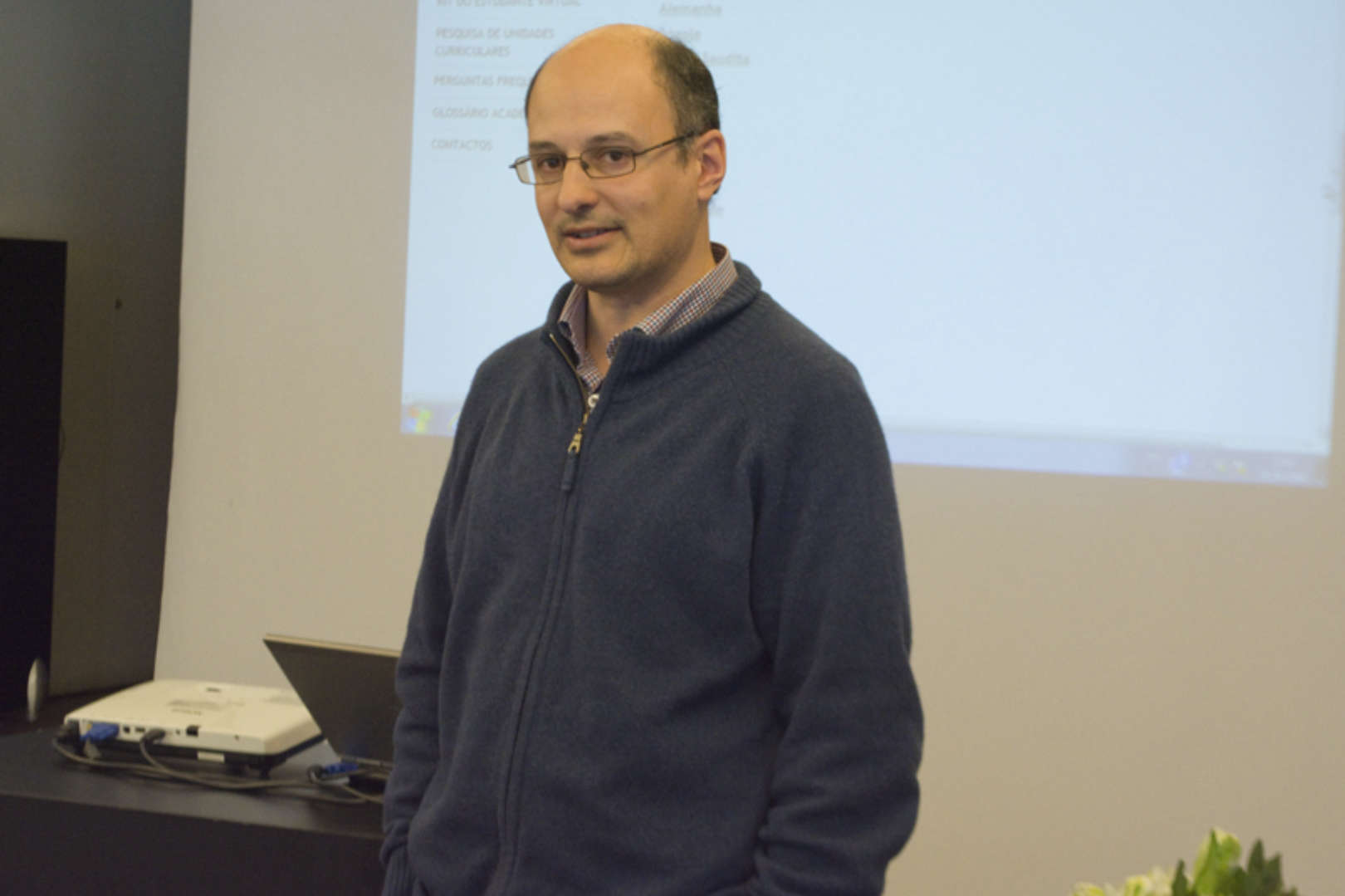Sobre
Vitor Rocio é doutorado em Informática pela Faculdade de Ciências e Tecnologia da Universidade Nova de Lisboa, Portugal (2002), e Licenciado em Engenharia Informática pela FCT-UNL, Portugal (1993). É professor associado da Universidade Aberta, e desde 2012, pró-reitor para o Campus Virtual.
Os seus principais interesses de investigação são as tecnologias das linguagens humanas, o processamento automático de línguas naturais, os sistemas de análise sintáctica evolutivos, a programação em lógica, e as tecnologias de elearning. http://scholar.google.pt/citations?hl=en&user=i6ilsfYAAAAJ


